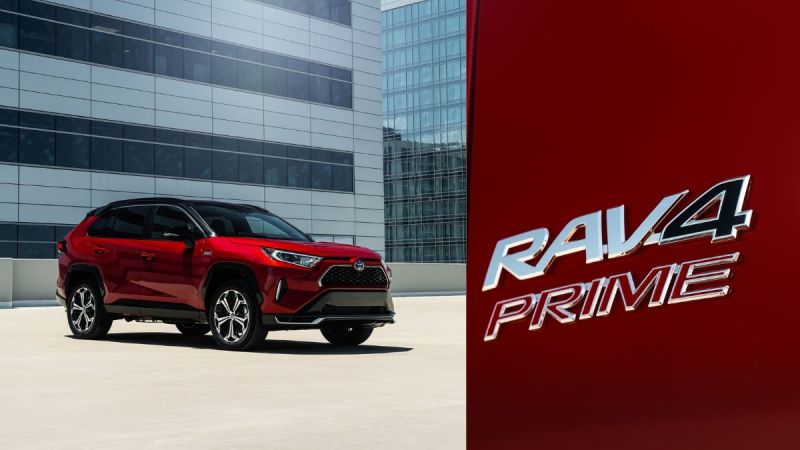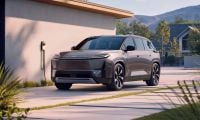To be clear: I am talking about a development that will happen over at least the rest of this decade, if not longer, and all of this is just my opinion. But the reason I think The Driven article is making accurate calls, and why I think Toyota only has a year or two to rapidly change course (barring a dramatic and far reaching development in the world and or about faces by the governments in the 3 largest car markets in the world) is because this isn’t just about car manufacturing. It is about technological change, or make that: revolution.
Toyota revolutionized car manufacturing, 50 years ago. Now, electric vehicles are revolutionizing the auto industry, in manufacturing, design, materials sourcing and supply chains. Toyota became the largest car maker in the world not that long ago because of their unquestionable success. Today, I would argue that cars (as a product) have much more in common with cell phones and computers, especially those that are battery powered. Part of their selling point is their technological “newness” (never mind that electric cars have been around as long as gasoline powered cars).
Technology changes like this don’t follow linear progressions, they escalate rapidly. Remember how fast smartphones took over the market when iPhones and Android phones showed up? Remember Blackberry? Nokia? The Microsoft phone? Or how about the speed in which large LED TV’s came to dominate the market? The change will be almost as fast in the auto industry now that we see major auto markets around the world with EV and plug-in hybrid sales crossing 25%, 30%, and higher of total new car sales.
The fact that Toyota, and most other mainstream manufacturers, have been slow to realize that the market (and governments) already decided electric cars are the future is why they are in jeopardy now. They will certainly struggle to survive this virtually unstoppable transition due to their slow response.
But why? Let’s look at what The Driven article calls out. First, Toyota still doesn’t get it, and this is why they are changing leadership now. As the article points out: “The BZ4X design, which shared its platform with petrol and hybrid cars, meant its first fully electric offering had redundant components that resulted in much higher manufacturing costs compared to Toyota’s “clean slate” EV competitors.” From the getgo we see Toyota making rookie mistakes. Anyone remember the Ford Focus EV? This is not the way to design an EV Toyota! This point was driven home by the fact that Toyota was unable to deliver an EV without its wheels literally falling off.
Second, Toyota isn’t planning to launch its EV range until 2027-2028, according to the Asahi Shimbun. That is another failed decision for Toyota. If they don’t get a dedicated EV platform out for another 4 or 5 years, their market share is going to virtually evaporate. Toyota will be hard pressed to pay its bills with only a fraction of the sales its enjoyed in recent years (and Toyota has a lot of debt).
The market is headed toward electric vehicles, and fast. Even though there will still be new fossil fueled vehicles for sale in 4 or 5 years from now, their share of the market in the three largest markets (China, the US and Europe) may well be in the minority and you can bet that Toyota isn’t going to have what remains all to itself. In that time-frame we might see EVs and plug-in hybrids with 50%, or more, of the new car market. If Toyota doesn’t have a deep plug-in product line on offer by then, how are they going to survive? Perhaps with lots of plug-in hybrids? One thing is for sure, standard, non plug-in, hybrids won’t be enough.
Finally, China. That’s right, just one word… okay, it's many. China is “attaining a new stage in its industrial revolution” and guess what that means for traditional automakers? There’s going to be very stiff competition in the Chinese auto market and it's going to be heavily focused on rapidly expanding EV and plug-in hybrid sales, which Chinese brands will rapidly take large shares of. Public opinion, especially in China and Europe, is rapidly shifting away from fossil fuel powered cars and even if the US market takes its sweet time moving that direction, the largest markets in the world besides the US won’t wait and that will only intensify the pain for the slow moving manufacturers.
If Toyota can pivot faster though, perhaps by scaling PHEV production at break neck speed while it goes back to the drawing board on EVs with life or death urgency, they might have a shot of getting a few competitive EV models on the market in a couple years. If they’re smart they’ll go after a vehicle type they can make the most of, that they can do better than anyone, and will deliver on that famed Toyota quality. That opportunity seems to be there in the sub $40k EV sector, since there is minimal competition, or perhaps in the PHEV pickup and midsize - full-size SUV sector for example. But scaling production is still terribly hard and Toyota has precious little time to do so.
What do you think, readers? Is Toyota doomed, or do they still have a shot before their market share dries up, their war chests empty and their debt overwhelms them? Please leave your comments and questions below.
Images courtesy of Toyota.
Justin Hart has owned and driven electric vehicles for over 15 years, including a first generation Nissan LEAF, second generation Chevy Volt, Tesla Model 3, an electric bicycle and most recently a Kia Sorento PHEV. He is also an avid SUP rider, poet, photographer and wine lover. He enjoys taking long EV and PHEV road trips to beautiful and serene places with the people he loves. Follow Justin on Twitter for daily KIA EV news coverage.
Set as google preferred source












Comments
There will always be a market
Permalink
There will always be a market for gasoline powered Technicals in the Middle East.
While I am sure that will be
Permalink
In reply to There will always be a market by bob E (not verified)
While I am sure that will be the case for a long time still, and probably in many smaller and or less developed countries, but at some point, most auto manufacturers will have to discontinue internal combustion engine vehicles (for consumer market at least). When that happens, what do you think will happen to the oil industry at that point, and the price of gas/oil?